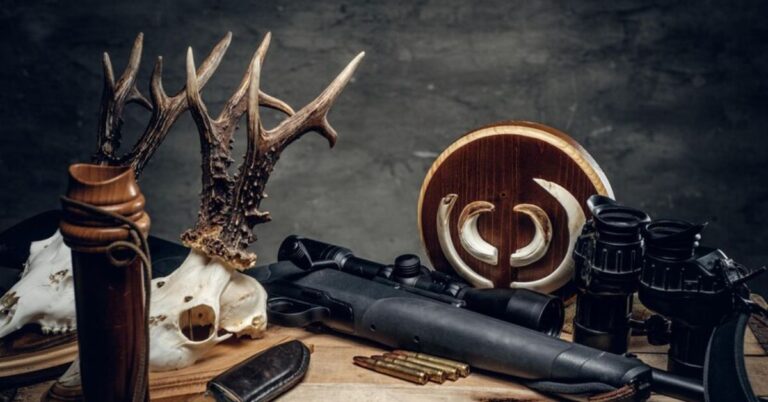Introduction to Rifle Scopes
Rifle scopes are indispensable tools for hunters and sport shooters seeking precision in their shots. They magnify the view of distant targets and aid in more accurate aiming, which is especially crucial when the stakes are high. The proper scope plays a pivotal role, whether you’re eyeing a big game in an open field or targeting a precise bulls-eye at the range. It can be tempting to dive into the diverse world of optics and choose the first intriguing option, like exploring the Burris spotting scope Canada, but informed choices lead to better outcomes.
Rifle scopes are precision instruments that can transform the shooting experience rather than merely serve as visual aids. They reduce the guesswork involved in aiming by offering various enhancements—ranging from magnification to environmental compensation—helping shooters of all levels. By understanding your specific needs and matching them to the right equipment, shooting can become less about luck and more about skill and equipment synergy.
Types of Rifle Scopes
The world of rifle scopes is vast, with each type designed to meet specific shooting demands. Fixed scopes, as their name suggests, offer a single magnification level. This simplicity can be advantageous in situations requiring rapid decisions, where adjusting magnification could cost precious moments. Variable scopes, on the other hand, offer versatility. They allow users to change magnification levels to suit varying distances and target sizes, making them ideal for shooting across different environments.
Night vision scopes add another layer of sophistication. Utilizing technology that enables sight in low-light conditions, these scopes are perfect for hunters pursuing nocturnal games or those practicing night-time shooting. Selecting the correct type of scope involves balancing immediate needs and foreseeable challenges in the environments you’re most likely to shoot in.
Importance of Magnification and Lens Quality
Magnification is one of the most critical aspects of any rifle scope. It allows shooters to see their target in greater detail, essential for making precise shots at various distances. The choice between low and high magnification depends mainly on the shooting scenario. For instance, a scope with low magnification might be preferable for woodland hunting, where targets may appear suddenly and at close range. Conversely, high magnification is advantageous in open terrains, where longer distances must be covered.
The quality of the lenses also plays an indispensable role in shooting precision. High-quality optical lenses can make a remarkable difference, ensuring the image seen through the scope is clear and bright. Good lens quality improves light transmission and reduces glare, providing a clearer sight of the target. Investing in lenses that offer superior clarity can be worth every penny, enhancing performance and confidence in any shooting activity.
The Role of Reticles in Shooting Accuracy
Reticles, commonly known as crosshairs, are the focal points for aiming within a scope. They come in various designs, each serving different shooting styles and needs. With its simple design, the duplex reticle is favored for its effectiveness in quick target acquisition. Its thicker lines help center the aim swiftly without overwhelming the shooter with too much information.
More complex reticles like the mil-dot are ideal for those requiring even more precision, such as tactical shooters or those involved in competitive shooting. These reticles assist with range estimation and calculating bullet drop, offering a sophisticated aid to accurate shot placement over varying distances. Mastery of the reticle relevant to one’s shooting discipline can significantly enhance hitting the vital zone of a target.
Key Considerations for Beginners
Beginners in the shooting world might feel overwhelmed by the vast array of options and technical terms associated with rifle scopes. For those new to shooting sports, focusing on scopes that emphasize simplicity and ease of use is crucial. A straightforward scope allows newcomers to develop their shooting skills without the added complication of adjusting multiple variables.
Additionally, selecting scopes with precise optics and intuitive controls can make all the difference. Easy-to-adjust dials, clear instruction manuals, and durable construction make the learning process smoother and more enjoyable, allowing for a natural progression of skill development in shooting.
Advanced Features for Experienced Users
As shooters gain more experience, they often seek additional features in their equipment to hone their skills further and enhance their performance. Advanced features like range estimation calculators and bullet drop compensators can be game-changers. These tools allow veterans to adjust rapidly to changes in shooting conditions, such as distance to target and bullet trajectory.
For instance, shooters in competitive settings will appreciate the precision these advanced features afford. The ability to accurately assess environmental variables and adjust accordingly can mean the difference between a mediocre shot and a championship-winning one.
Maintenance Tips for Longevity
Proper maintenance of rifle scopes is essential for ensuring they remain functional and precise over time. Start with regular cleaning—dust and dirt can cloud lenses and degrade visibility. Appropriate cleaning materials explicitly designed for optics can prevent scratches and maintain clarity.
When not in use, scopes should be stored in a dry, secure place to prevent exposure to moisture and physical damage. Routine checks for misalignment or loose components also help maintain the scope’s reliability and accuracy. A well-maintained scope performs better and lasts longer, providing enduring value.
Common Mistakes to Avoid
There are many pitfalls in selecting and using the perfect rifle scope. One of the most common mistakes is over-prioritizing magnification. While it might seem that higher is better, excessive magnification can lead to a narrow field of view, making it harder to spot moving targets. Instead, it’s essential to match the magnification level to the shooting environment and the types of targets one expects to encounter.
Additionally, it is crucial to avoid a one-size-fits-all approach to scopes. Depending on different needs and shooting styles, what works for one shooter might not work for another. Understanding and aligning personal requirements with the right features can lead to a fulfilling shooting experience. Consulting a guide on scope selection mistakes is beneficial in aiding selections that enhance your shooting prowess rather than hinder it.

